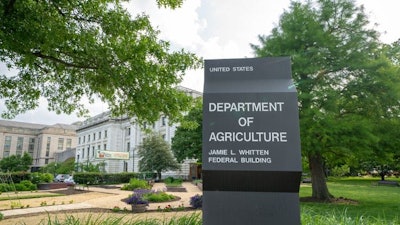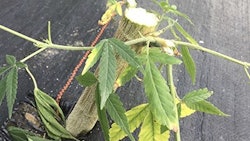
Hemp growers once again can their voices heard by the U.S. Department of Agriculture (USDA), as the federal agency officially reopened its public comment period for its Interim Final Rule (IFR).
Farmers and industry stakeholders have until Oct. 8, 2020, to submit comments on the proposed rules. In a notice on the agency’s website, the USDA noted that it is seeking comments on:
- Measurement of Uncertainty for Sampling
- Liquid Chromatography Factor, 0.877
- Disposal and Remediation of Non-Compliant Plants
- Negligence
- Interstate Commerce
- 15-day Harvest Window
- Hemp seedlings, microgreens, and clones
- Hemp breeding and research
- Sampling Methodology – Flower vs. Whole Plant
- Sampling Methodology – Homogeneous Composition, Frequency, and Volume
- Sampling Agents
- DEA Laboratory Registration
In addition to these 12 points, the National Hemp Association (NHA) is calling on hemp industry stakeholders to also ask that the USDA delay implementing the IFR until Dec. 31, 2021, and that the agency extend its authority in the hemp market “to include issuing processing permits to protect processors to fill the legal gap between farm and consumer,” according to an NHA newsletter.
Geoff Whaling, co-founder at Collective Growth Corporation and chair of the NHA, said in an interview with Hemp Grower that delaying the IFR will allow farmers and stakeholders to better identify persistent issues that have cropped up since the industry restructured following the enactment of the 2018 Farm Bill. For example, states that maintain hemp’s status on their controlled substances list or the 0.3% THC-content threshold are giving legal jurisdiction to the Drug Enforcement Administration (DEA), he argued. This has had a chilling effect on the industry’s early growth.
“People are concerned about taking hemp on, particularly law-abiding citizens and farmers who are concerned that they're going to get arrested because they're given a permit to legally grow a crop, but some rogue DEA can say, 'Ah, but you know what, that's really marijuana in our books because Pennsylvania ... hasn't removed up to the 0.3% THC from the state’s controlled substances act,’” Whaling explained.
“If [the USDA extends] the IFR to 2021, that will give us time to get all those things addressed, even if we need to get legislation passed by Congress,” he added.
The NHA’s second priority also is an attempt to limit the DEA’s involvement in the hemp industry, if not remove it completely. Hemp processors currently sit in a regulatory no-man’s-land, Whaling said, as they are not mentioned in the IFR. The DEA apparently has seized on this opportunity to regain some modicum of control over the hemp industry by issuing its own IFR.
In an Aug. 26 report, HG associate editor Theresa Bennett noted that the cannabinoid extraction process can temporarily result in increased delta-9 THC levels. With hemp’s legal definition still including the 0.3% THC limit, that “high-THC” material may still be considered a Schedule I substance, even if the processor had intended to dilute its delta-9 THC to legal levels by the time of sale.
“The way that this rule is written, there is a serious problem for processors who may have a delta-9 THC byproduct that never was intended for sale,” Daniel Shortt, an attorney with Harris Bricken, told HG in August. “With the way these rules are written, I think those people are now at risk.”
READ ALSO: What the DEA’s Interim Final Rule on Hemp Really Means for the Industry
The USDA’s current IFR also would require that all hemp products be tested by a DEA-registered laboratory, a problem for states like Oregon which has the fifth-largest hemp industry by acre in the country, but no DEA-registered testing lab.
Whaling said the USDA is the hemp industry’s ally, not its foe. “We have a very short window to [comment], and I know that there is a very eager group within USDA [that] wants to hear from our stakeholders because they are committed to building this crop. Unless they hear from everyone, they won't be able to achieve that,” he said. The USDA has only been involved in the hemp industry since 2018, after the passage of the Farm Bill; there are hemp farmers that have been in the industry for a longer period of time than the federal regulators.
“So, the more people that can participate by sharing their experience, the more that we will help educate them, which will, at the end of the day, help the industry,” Whaling said.
Per the USDA, written comments should be submitted via the Federal eRulemaking portal at www.regulations.gov. Comments may also be sent via email to [email protected] or sent by postal mail to USDA/AMS/Specialty Crops Program Hemp Branch, 470 L’Enfant Plaza SW, PO Box 23192, Washington DC 20026.























